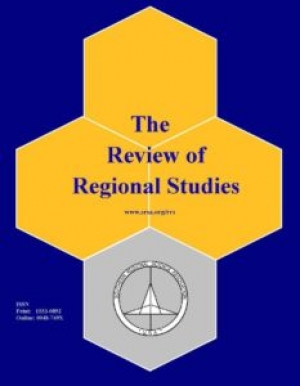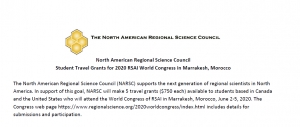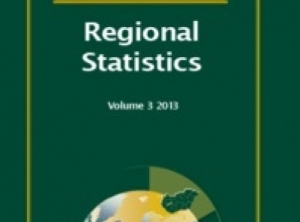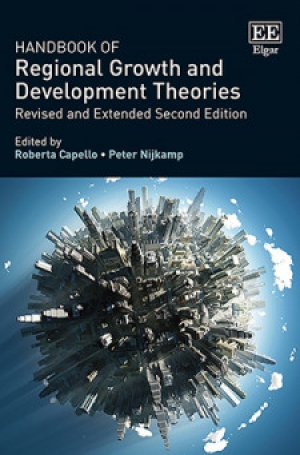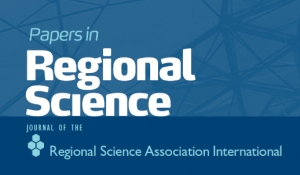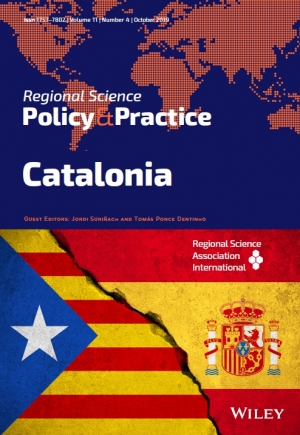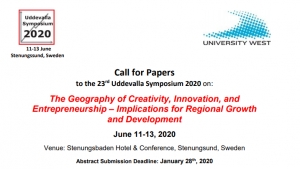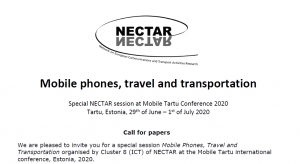Archives
Elisabete Martins
Call for Papers: Review of Regional Studies 50th Anniversary Issue
|
||
|
NARSC | Student Travel Grants for 2020 RSAI World Congress in Marrakesh, Morocco

North American Regional Science Council
Student Travel Grants for 2020 RSAI World Congress in Marrakesh, Morocco
The North American Regional Science Council (NARSC) supports the next generation of regional scientists in North America. In support of this goal, NARSC will make 5 travel grants ($750 each) available to students based in Canada and the United States who will attend the World Congress of RSAI in Marrakesh, Morocco, June 2-5, 2020. The Congress web page https://www.regionalscience.org/2020worldcongress/index.html includes details for submissions and participation.
Eligibility conditions:
- Have presented a paper at one of the following conferences in either 2018 or 2019 – NARSC, WRSA, SRSA, or MCRSA.
- Have submitted a paper for presentation to the World Congress;
- Affiliation with a North American research organization and North American residence at the time of the application and at the time of the Congress;
- In case of joint research, only one author can apply for travel support;
- Must be a student at the time of the World Congress.
Applications will be reviewed by the NARSC Executive Committee. All decisions are final.
Please submit application package via email in Adobe Acrobat format to Dr. Neil Reid, NARSC Executive Director, This email address is being protected from spambots. You need JavaScript enabled to view it.. The pdf file should be named after your last and first names (e.g., LastName-FirstName.pdf).
The deadline for grant application is February 3, 2020. Awards will be announced by February 21, 2020.
Applicant package should include the following items:
- Name, professional status, affiliation, and contact information;
- Title, author names, and affiliations of the submitted paper(s);
- Abstract of the submitted paper(s);
- Estimated itemized travel budget to attend the 2020 RSAI World Congress;
- Other sources of funding and amount;
- Statement from applicant why attending the 2020 RSAI World Congress will be beneficial to their future careers as regional scientists. This statement should be no longer than 500 words;
- Letter of support from academic advisor.
Please note that checks will be issued to recipients after the World Congress.
The New Issue of Regional Statistics is already Available!
THE NEW ISSUE OF REGIONAL STATISTICS IS ALREADY AVAILABLE!
We are pleased to inform you that a new issue of the Regional Statistics has been released and now it’s avaiable online.
http://www.ksh.hu/docs/hun/xftp/terstat/2019/eterstat1902.pdf
REGIONAL STATISTICS, 2019, VOL 9, No 2.
STUDIES
Rob Atkinson: The Small Towns conundrum: What do we do about them?
http://www.ksh.hu/docs/hun/xftp/terstat/2019/rs090201.pdf
János Rechnitzer – Judit Berkes – Bálint Filep: The most important city development initiatives of Hungary
http://www.ksh.hu/docs/hun/xftp/terstat/2019/rs090204.pdf
Dávid Fekete – Szabolcs Morvay: Creative cities in Central and Eastern Europe – Examining the position of Győr from the creative and cultural aspects of this macro-region
http://www.ksh.hu/docs/hun/xftp/terstat/2019/rs090209.pdf
Duco De Vos – Evert Meijers: Population, diversity, and restaurants: trends in the geography of cuisine variety in the Netherlands
http://www.ksh.hu/docs/hun/xftp/terstat/2019/rs090206.pdf
Attila Béres – György Jablonszky – Tamás Laposa – Györgyi Nyikos: Spatial econometrics: transport infrastructure development and real estate values in Budapest
http://www.ksh.hu/docs/hun/xftp/terstat/2019/rs090202.pdf
Jose Maria Fernandez-Crehuet – Jorge Rosales-Salas – Gonzalo Galindo Barragán: Construction and validation of an international reputation index: the European case
http://www.ksh.hu/docs/hun/xftp/terstat/2019/rs090205.pdf
Hanna Dudek – Gülşah Sedefoğlu: Modelling severe material deprivation rates in EU regions using fractional response regression
http://www.ksh.hu/docs/hun/xftp/terstat/2019/rs090210.pdf
Kenichi Shimamoto: Empirical analysis of the distribution of urban parks in Japan
http://www.ksh.hu/docs/hun/xftp/terstat/2019/rs090203.pdf
Ramazan Magomedovich Magomedov–Khadzhimurad Arturovich Israpilov – Anatoliy Vasilevich Zolotaryuk – Svetlana Magomedovna Doguchaeva – Olga Yuryevna Gorodetskaia – Olga Nikolaevna Tsvetkova: Regional taxable capacity measurement methodology based on factors that determine tax gaps based on the example of the Republic of Dagestan
http://www.ksh.hu/docs/hun/xftp/terstat/2019/rs090207.pdf
Kateryna Serhiivna Akbash – Natalia Оleksiivna Pasichnyk – Renat Yaroszlavovich Rizhniak: Adaptation of the UN’s gender inequality index to Ukraine’s regions
http://www.ksh.hu/docs/hun/xftp/terstat/2019/rs090208.pdf
Tamás Szabó: Public service as an indicator of competitiveness
http://www.ksh.hu/docs/hun/xftp/terstat/2019/rs090211.pdf
Join us to our social networking sites:
Handbook of Regional Growth and Development Theories, edited by Roberta Capello & Peter Nijkamp
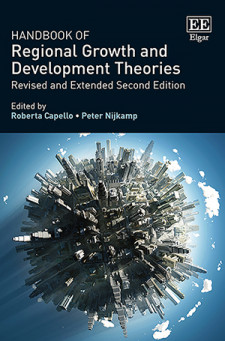 Handbook of Regional Growth and Development Theories
Handbook of Regional Growth and Development Theories
Revised and Extended Second Edition
Consultancy opportunity with UN-Habitat!
Deadline: 06 December
Consultancy opportunity with UN-Habitat headquarters: Urban Migration Expert
Dear UNI partners,
Do you have experience in urban migration and a passion for sustainable urban practices worldwide?
We are hiring an expert to provide technical Expertise to the implementation of the Housing Rights Programme and the MC2CM project, specifically on the drafting of a City Migration Profile, focusing on the implementation of activities related to housing rights and inclusion of groups in a vulnerable situation.
The consultant will report to and work under the general guidance of the Housing Unit. The consultant will be expected to work remotely.
Do you want to find out more? Apply before the opening closes on 06 December!
Full job description here.
The latest issue of Papers in Regional Science is available! Volume 98, 6 (December 2019)
|
Papers in Regional Science Pages: 2209-2509 December 2019 |
ISSUE INFORMATION
Pages: 2209-2210 | First Published: 28 November 2019
FULL ARTICLES
Why are some Spanish regions more resilient than others?
Yolanda Ubago Martínez, Ignacio García‐Lautre, Belén Iraizoz, Pedro Pascual
Pages: 2211-2231 | First Published: 03 July 2019
Michele Binetti, Nicola D. Coniglio
Pages: 2233-2250 | First Published: 03 July 2019
Tomaso Pompili, Maurizio Pisati, Eleonora Lorenzini
Pages: 2251-2273 | First Published: 02 July 2019
![]() Open Access
Open Access
Regional diversity in experiences of cohesion policy: The cases of Emilia‐Romagna and Calabria
Valentina Aiello, Pierre Maurice Reverberi, Cristina Brasili
Pages: 2275-2293 | First Published: 19 June 2019
Spillover effects when IKEA enters: Do incumbent retailers win or lose?
Sven‐Olov Daunfeldt, Oana Mihaescu, Helena Nilsson, Niklas Rudholm
Pages: 2295-2313 | First Published: 07 June 2019
Do new and relocating firms have different preferences for accessibility?
Ioannis Baraklianos, Louafi Bouzouina, Patrick Bonnel, Ouassim Manout
Pages: 2315-2341 | First Published: 14 June 2019
The effect of FAR (floor area ratio) regulations on land values: The case of New York
Byunggeor Moon
Pages: 2343-2354 | First Published: 02 May 2019
Wen Fan, Lifang Zhang
Pages: 2355-2369 | First Published: 25 June 2019
A distance correlation index of spatial dependence for compositional data
- Simona Andreano, Roberto Benedetti, Federica Piersimoni
Pages: 2371-2389 | First Published: 23 May 2019
SPAG: Index of spatial agglomeration
Katarzyna Kopczewska, Paweł Churski, Artur Ochojski, Adam Polko
Pages: 2391-2424 | First Published: 12 July 2019
![]() Open Access
Open Access
Personality traits, migration intentions, and cultural distance
Didier Fouarge, Merve Nezihe Özer, Philipp Seegers
Pages: 2425-2454 | First Published: 02 July 2019
The commuting behaviour of self‐employed workers: Evidence for Spain
Juan‐Francisco Albert, José M. Casado‐Díaz, Hipólito Simón
Pages: 2455-2477 | First Published: 06 July 2019
David Peón, Jorge Rodríguez‐Álvarez, Edelmiro López‐Iglesias
Pages: 2479-2502 | First Published: 02 July 2019
BOOK REVIEW
Albert Saiz
Pages: 2503 | First Published: 26 October 2019
REFEREES
Pages: 2505-2509 | First Published: 28 November 2019
The latest issue of Regional Science Policy & Practice are available! Volume 11, Issue 5, Special Issue: Catalonia, Pages 757-876, November 2019
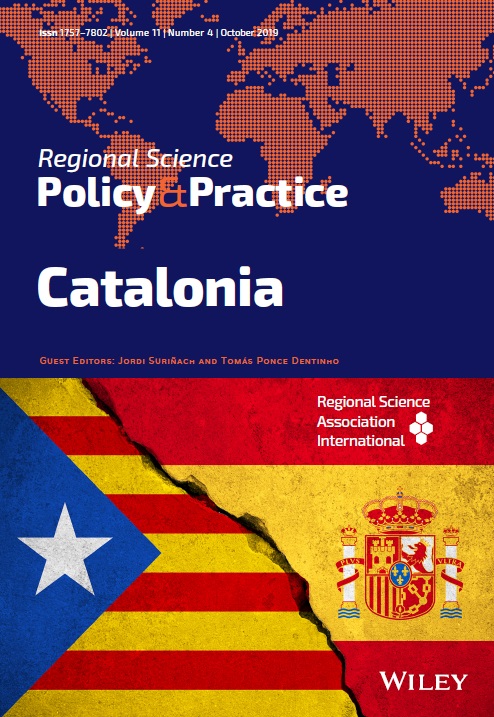
Volume 11, Issue 5
Special Issue:Catalonia
757-876
November 2019
Jordi Suriñach, Tomás Ponce Dentinho
ISSUE INFORMATION
Issue Information
- Pages: 757-758
SPECIAL ISSUE: CATALONIA
Catalonia
- Pages: 759-761
Constitutional reform, referendums and sovereignty association: Quebec's search for a distinct society in Canada
- Pages: 763-774
BOOK REVIEWS
Exports, Trade Policy and Economic Growth in Eras of Globalization — Edited by Edward M. Feasel
-
Pages: 865-866
Handbook of research on economic and social well‐being — Edited by Conchita D'Ambrosio
- Pages: 866-873
From summits to solutions. Innovations in implementing the sustainable development goals
- Pages: 873-876
CALL FOR PAPERS 23rd Uddevalla Symposium 2020 - June 11-13
Dear colleague,
We kindly invite you to submit abstracts to the 23rd Uddevalla Symposium 2020, June 11-13, 2020 on: The Geography of Creativity, Innovation, and Entrepreneurship – Implications for Regional Growth and Development. Please see attached abstract.
Venue: Stenungsbaden Hotel & Conference, Stenungsund, Sweden
Abstract Submission Deadline: January 28th, 2020 https://symposium.hv.se/symposium-2020/abstract-submission/
We are very proud to present the following eleven Keynote Speakers!
Assoc. Prof. Dr. Maria Abreu, University of Cambridge, UK
Prof. Zoltan Acs, George Mason University, USA
Prof. Sharmistha Bagchi-Sen, University of Buffalo, USA
Assoc. Prof. Tom Brökel, University of Stavanger, Norway
Prof. Susanne Durst, University West, Sweden
Prof. Maryann Feldman, University of North Carolina, USA
Prof. Nicolai Foss, Bocconi University, Italy
Dr. Sari Kerr, Wellesley College, USA
Prof. Dr. Annekatrin Niebuhr, Kiel University, Germany
Prof. Andrés Rodríguez-Pose London School of Economics, UK
Prof. Michael Storper, UCLA Luskin School of Public Affairs, USA
Please see more information in attached Call for papers and on the special sessions at the homepage https://symposium.hv.se/symposium-2020/special-sessions/
Kind regards,
Iréne Bernhard, Chair
On behalf of the Organizing Committee
06-12-2019 "The Giacomo Becattini Archive"
Organized by the Library of Social Sciences of the University of Florence under the patronage of the Department of Economics and Business Sciences of the same University
On Friday 6 December 2019 at 10.45 am "The Giacomo Becattini Archive" will be presented at the Library of Social Sciences of the University of Florence.
Speakers: Gaetano Aiello (Director of the Department of Economics and Business Sciences), Lucilla Conigliello (Director of the Library of Social Sciences), Marco Dardi (University of Florence), Maria Cristina Marcuzzo (Sapienza University of Rome), Fabio Sforzi (University of Parma).
CL 8 special session @ Mobile Tartu conference
Dear NECTAR friends,
December 1st the general call opens for the coming Mobile Tartu conference 2020. Cluster 8 will be organizing a special Nectar session (or sessions). Attached you will find the cluster 8 ICT call for this special Nectar session.
Best regards
--
Ana Condeço-Melhorado
NECTAR Secretary

About Us
The Regional Science Association International (RSAI), founded in 1954, is an international community of scholars interested in the regional impacts of national or global processes of economic and social change.

